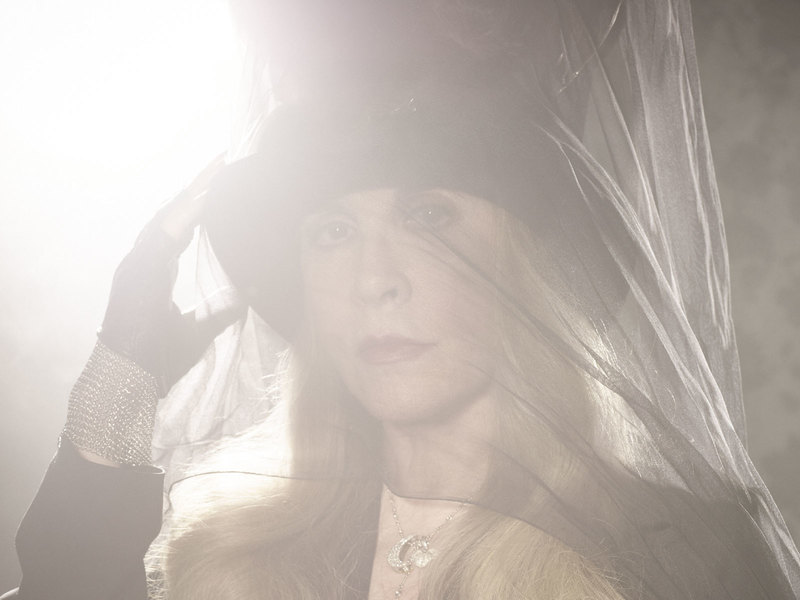After a nearly three-year absence, the storytelling outfit known as The Moth returned to Milwaukee for a show at the Pabst Theater Thursday night.
The Moth gained attention after excerpts of its live shows appeared on "This American Life." The popularity of these segments led to The Moth becoming more widespread through touring and its own podcast.
Every show by The Moth has a different theme and a different cast of storytellers. Each person is given 10 minutes to tell their story, otherwise a musician onstage will give them a cue to start wrapping it up. However, 10 minutes in Moth time is actually more like 15 to 20.
The theme for Thursday's show was "Past Tense, Future Perfect: Stories About Generations." The host for the night was Ophira Eisenberg, who kept things light with quick anecdotes in between each of the five scheduled guests. Cellist Tomeka Reid was the designated timekeeper to keep the performers in line, but was also given a chance to shine with two brief compositions she played.
The opening storyteller for the evening was Anthony Giglio. He began by talking about his grandfather, who was in the mob and who wanted his children to stay away from that lifestyle. This greatly disappointed Anthony's father, who ultimately stayed out of the business but remained hard-nosed and tough. Giglio felt like a constant disappointment to his father since he wasn't athletic and preferred to cook "30 years before Mario Batali and Emeril Lagasse made it cool."
The finale of the story after Giglio confronted his father was heart-warming and prompted some quivering in Giglio's voice. He set the bar incredibly high to start off the night and while some others came close to this standard, Giglio's story was the most enduring.
The second narrative of the evening was from Detroit's Charles Pugh. Pugh told a sad tale about his grandmother suffering from Alzheimer's disease. Raised by his grandmother, Pugh had always wanted to make her proud. After graduating college, he began a career as a television reporter, leapfrogging from smaller to bigger markets until he landed in his hometown of Detroit. Back at home, the only person Pugh cared about being watched by was his grandmother. Unfortunately this coincided with her descent due to the disease.
Almost nine years after her death, Pugh talked about the grief that still lingers but also the joy he had growing up in Detroit. In a few small anecdotes, he provided an excellent snapshot of an incredibly strong woman.
The biggest name on the bill was actress Molly Ringwald, the legendary '80s icon, who talked about her daughter Matilda and some of the challenges she's faced at school. Ringwald's story was the least heavy of the stories told Thursday night, but a portion was dedicated to the serious matter of bullying. Since Ringwald had been bullied at a younger age and had always played the underdog character in movies, she was disheartened to learn that Matilda was seen as a potential bully at her grade school.
The best part of Ringwald's story was when she said that she'd only been in a principal's office once before and that was only because it was a scene in "The Breakfast Club." The ending of Ringwald's story was pretty vague and glossed over, but her affable personality made up for the poor epilogue.
The program then took what was supposed to be a 15-minute intermission. Unfortunately the intermission was almost twice as long, apparently adhering to "Moth time" standards, which hurt the momentum of the evening. When the show returned, executive director of The Moth Joan Firestone came out to thank the Pabst audience for their support. She then started rattling off all the noteworthy awards The Moth has won and reiterated how important storytelling is.
It ultimately felt far too self-congratulatory and left a bit of a foul taste in how proud the program was of itself. Since it was already clear that The Moth had gained a dedicated audience, it seemed hollow for her to brag how popular the series had become.
After the back-patting was over, the program resumed with local blogger Alexandra Rosas, who was given the opportunity to perform as part of The Moth after submitting her story through their pitch process. Her story revolved around her idolization of her father and the sacrifice he made by leaving South America. After detailing her father's suicide, Rosas then transitioned into a discussion about a secret she held on to for far too long and the euphoria she felt of finally releasing it. Her wrap-up focused on the feedback her story has received and the incredible effect it had on a complete stranger.
Ed Gavagan was the final performer of the evening and the only one who had participated in the previous show at Turner Hall back in 2009. Gavagan delivered a follow-up piece to the story he'd told three years ago about a brutal attack he suffered in New York City. After recapping the key details of that story for those who might not have heard it, Gavagan then described how his life spun out of control due to post-traumatic stress.
As Gavagan recounted his failures and how lost he was, he repeatedly choked up while his eyes became glassy. While not as memorable as the original story, this one was just as important and was a perfect way to end the night.
Twice in the evening hints were made that The Moth will be returning to Milwaukee at some point in 2013. Regardless of the theme or who will be onstage, it is absolutely worth the price of admission. There's a reason The Moth has won so many awards, it knows how to put together one heck of a program.





